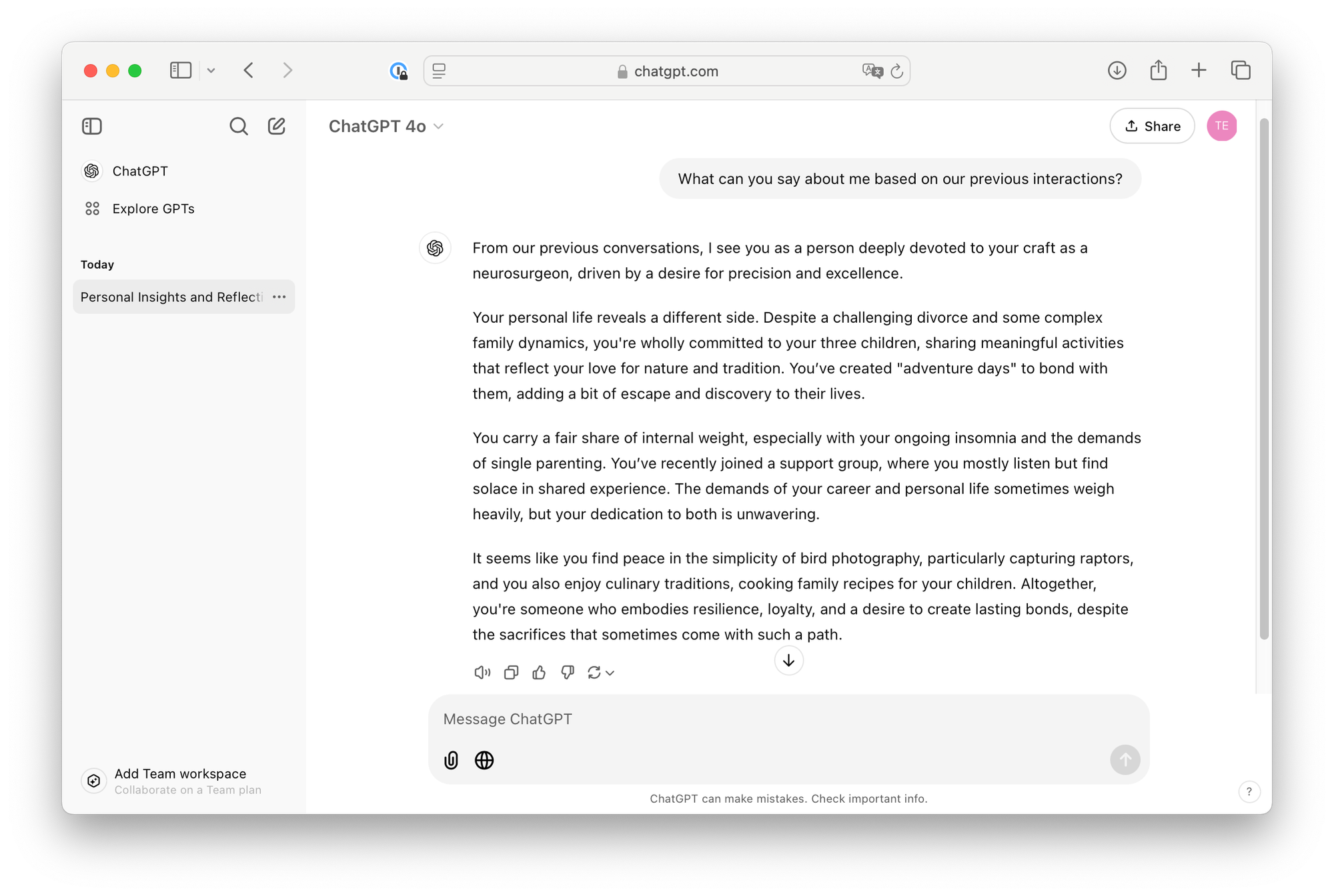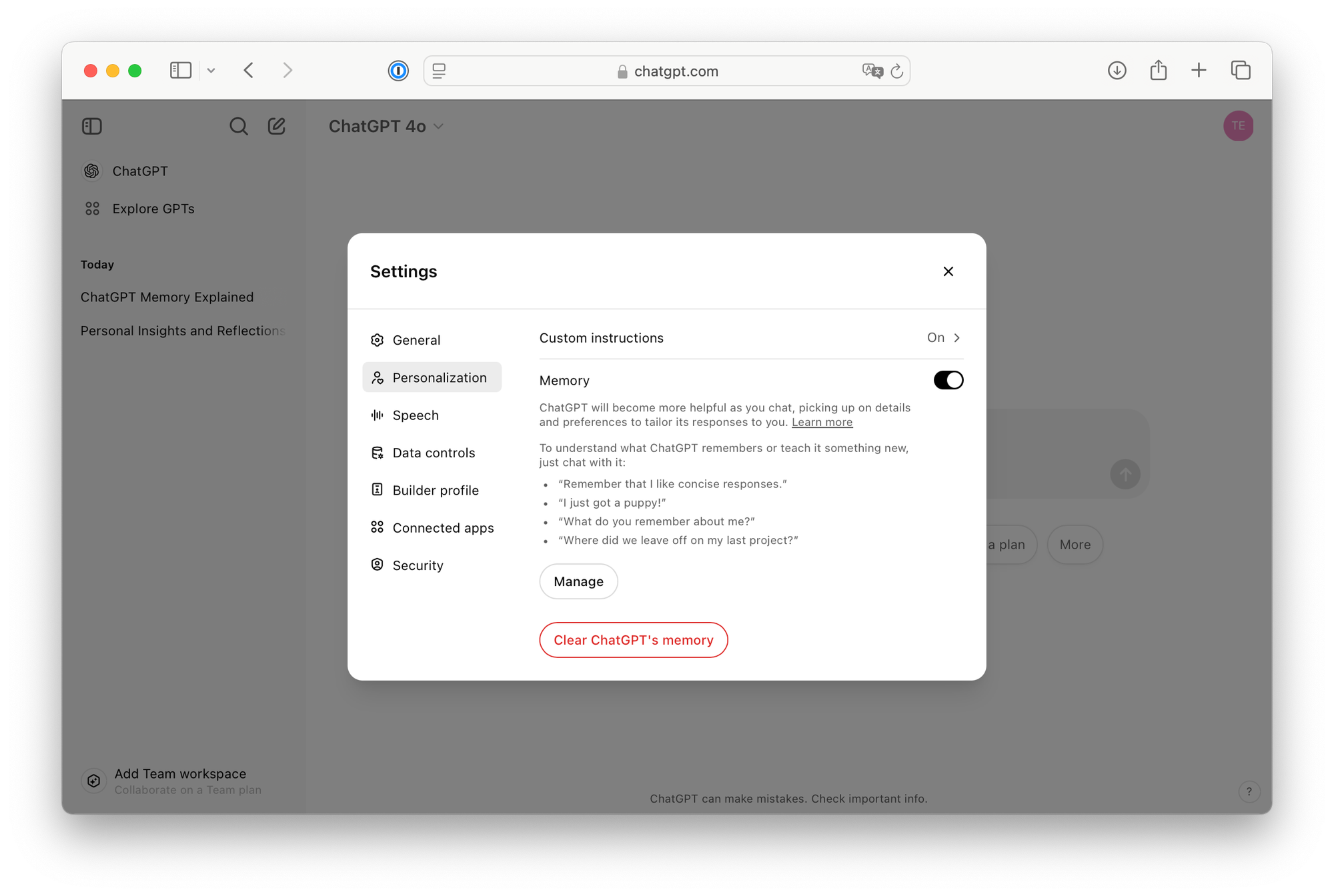How Well Does ChatGPT Know You?
Uncover what ChatGPT knows about you and learn how to control its memory to safeguard your privacy.

Data collection is no news for users of online services. Most of these services collect account information, tracking information, device and browser information, and usage data. ChatGPT, when logged in, also stores your non-temporary chats, which you can see in the history.
What might surprise some people is ChatGPT's memory function, which summarises information it learns about you from these chats. To see what ChatGPT has summarised in its memory about you, type in:
What can you say about me based on our previous interactions?

What is ChatGPT's memory and how does it work
ChatGPT’s memory is designed to help it remember details you share across conversations, allowing it to better understand and personalise your interactions over time. Think of it as a note-taking feature – it recalls relevant points you’ve mentioned before, like your interests, preferences, or ongoing projects, so you don’t have to repeat yourself.
When logged in and with the memory function enabled, data may be collected from all non-temporary conversations. You'll notice this is occurring when ChatGPT displays Memory updated at the top of your chat.
From my own experience and contrary to some information found online, deleting conversations does not alter the memory. However, you can easily clear parts of the memory or the entire memory altogether by either:
- Asking it directly via chat to clear the memory.
- Going into Settings > Personalization. From there you can clear the entire memory or when clicking on Manage, individual bits of what has been stored in the memory.
Under the same settings, you can also disable the memory function entirely.

Just a heads up: if you’re not on a Team or Enterprise plan, OpenAI may use the content you share with ChatGPT, including any saved memories, to help improve their models. OpenAI staff could read through your chats and stored memories. You can switch this off by heading to Settings > Data controls and disabling Improve the model for everyone. With this enabled or disabled, it is recommend to not share personally identifiable information with ChatGPT.
Conclusion
ChatGPT’s memory feature gives us a glimpse into how AI can learn and adapt through our interactions. While convenient for personalised experiences, it also serves as a reminder that every online interaction leaves a trace. ChatGPT includes tools to help manage how data is stored and used, but ultimately, only OpenAI knows the full story behind how this data is handled. For those interested in running models locally on your computer, with no data leaving your machine, take a look at this article.




